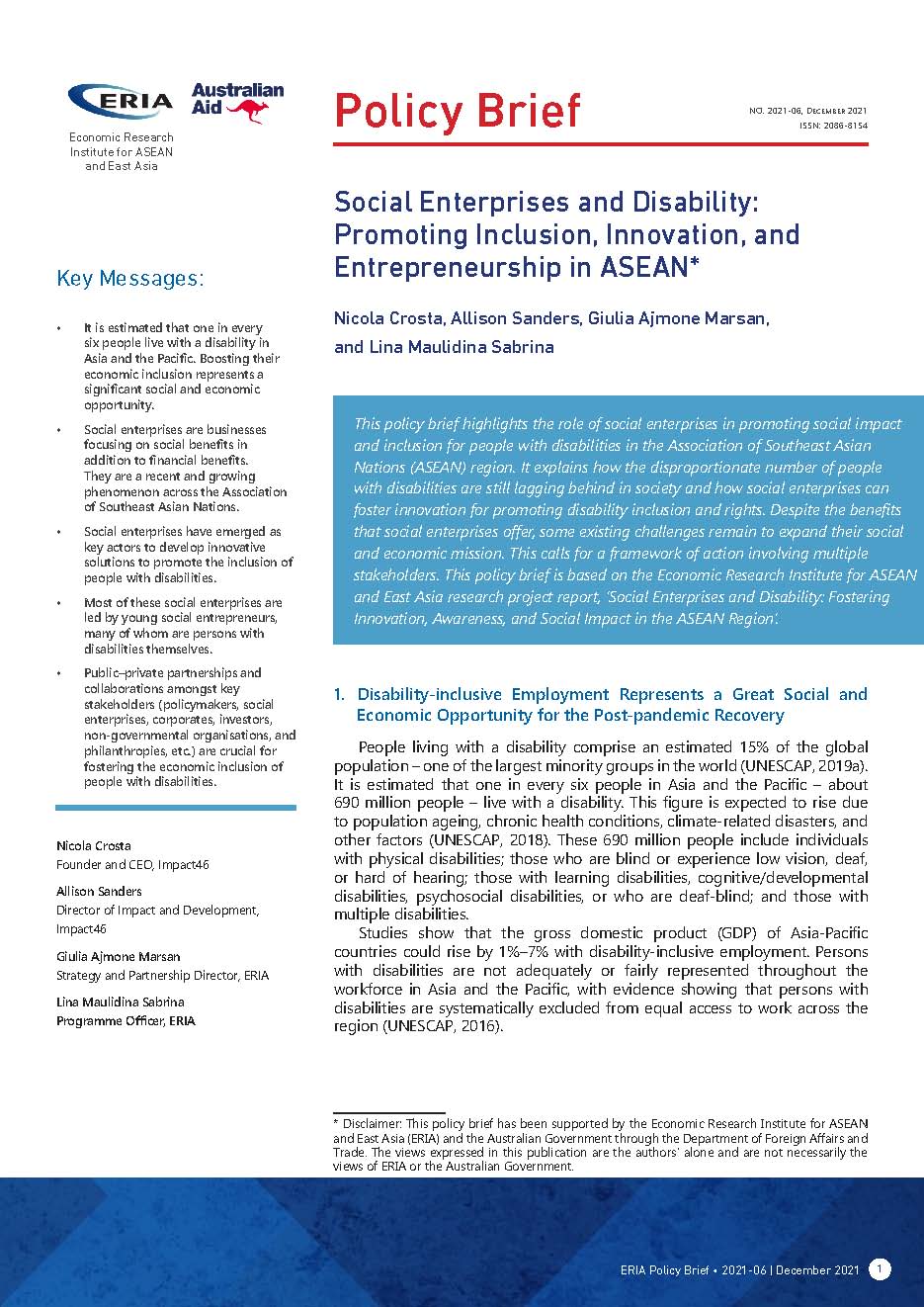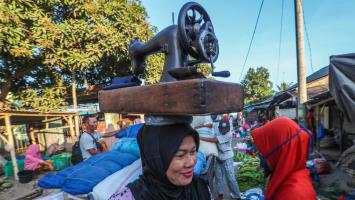Social Enterprises and Disability: Promoting Inclusion, Innovation, and Entrepreneurship in ASEAN
 Download (410 KB)
Download (410 KB)
Publication Type:
Publisher:
ERIA (Economic Research Institute for ASEAN and East Asia)
Publication:
December 2021
This policy brief highlights the role of social enterprises in promoting social impact and inclusion for people with disabilities in ASEAN.
Social entrepreneurship has shown significant growth in many of the member countries of the Association of Southeast Asian Nations (ASEAN). In Singapore, for example, over 90% of the existing social enterprises have been established since 2010. In Indonesia, over 70% were established in the past 5 years.
This policy brief highlights the role of social enterprises in promoting social impact and inclusion for people with disabilities in ASEAN. It explains how the disproportionate number of people with disabilities are still lagging behind in society and how social enterprises can foster innovation for promoting disability inclusion and rights. Despite the benefits that social enterprises offer, some existing challenges remain to expand their social and economic mission.
Contents
- Disability-inclusive Employment Represents a Great Social and Economic Opportunity for the Post-pandemic Recovery
- Social Enterprises have Emerged as Key Actors because of their Capacity to Identify New Solutions and Foster Inclusion and the Empowerment of Persons with Disabilities
- Most of These SEs are Led by Young Social Entrepreneurs, Many of Whom are Persons with Disabilities Themselves
- An Increasing Number of SEs are Offering Recruitment Support for Private Companies to Foster Disability Inclusion
- Governments across ASEAN Could Significantly Help Advance Social Entrepreneurship that Supports Persons with Disabilities
- Policy Recommendations


